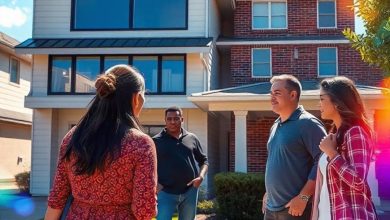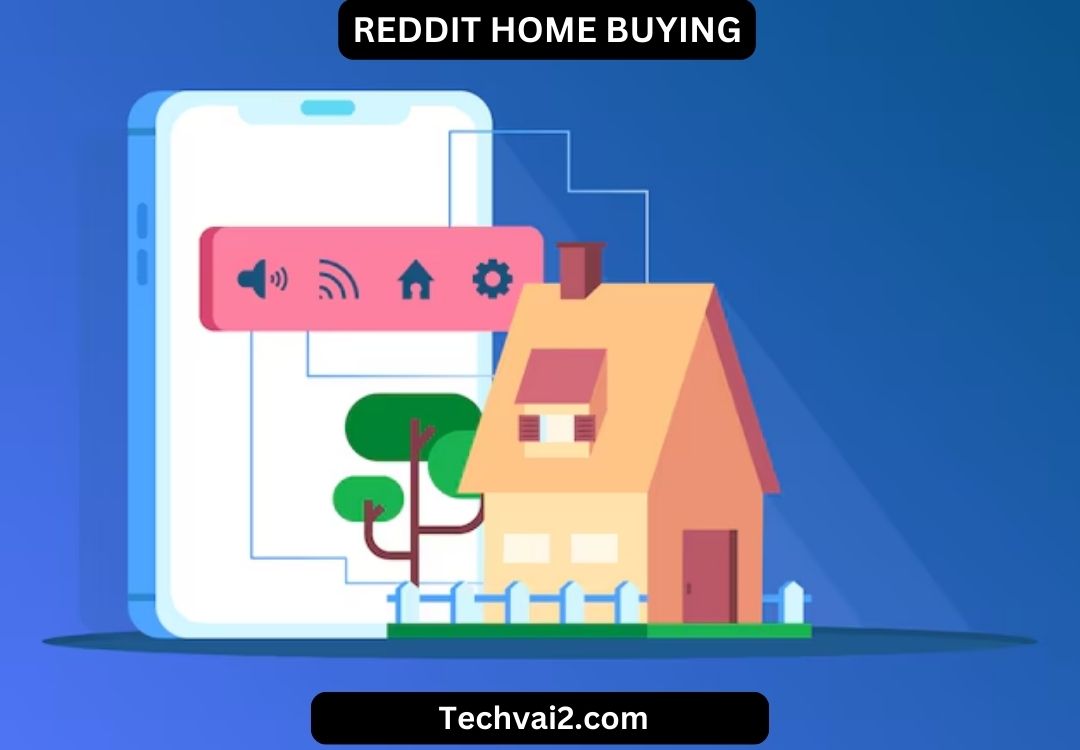How to buy foreclosed homes

What is a Foreclosed Home?
How to buy foreclosed homes .A foreclosed home is a property that has been repossessed by a lender, usually a bank, due to the homeowner’s inability to make mortgage payments. When a borrower defaults on their loan, the lender will eventually take legal steps to recover the property, often selling it to recoup the unpaid debt. These properties are often sold at a discount, making them an attractive option for buyers looking for a deal.
How to buy foreclosed homes
Why Buy a Foreclosed Home?
Buying a foreclosed home can offer significant savings, but it’s not without its challenges. Here are a few reasons why people consider purchasing these types of properties:
- Lower Purchase Price – Foreclosed homes are typically sold below market value, providing an opportunity to buy a home for less than you’d pay for a similar property.
- Potential for Profit – Investors can purchase, renovate, and sell the property at a profit.
- Access to Different Property Types – Foreclosures include single-family homes, condos, and even multi-family units.
- Faster Purchase Process – In some cases, the purchase process can be quicker compared to traditional home sales.
While these benefits are appealing, buyers should also be aware of the risks and complications that can arise when dealing with foreclosures.
Types of Foreclosed Properties
There are several stages of foreclosure, and each offers different opportunities for buyers:
REO (Real Estate Owned) Properties
These homes have already been repossessed by the bank after failing to sell at auction. Banks are often motivated to sell REO properties quickly, so they may be more open to negotiation.
Short Sales
A short sale occurs when a homeowner sells their home for less than what they owe on the mortgage, with the lender’s approval. Short sales can be a lengthy process but offer a chance to purchase a home at a discounted price.
Pre-Foreclosures
This stage occurs when the homeowner is behind on payments but the property has not yet been sold at auction. Buyers can approach the homeowner directly and negotiate a sale before the foreclosure process is completed.
Understanding the Foreclosure Process
To successfully navigate the world of foreclosures, it’s important to understand how the process works.
Default Notice
The process begins when the homeowner misses several mortgage payments. The lender issues a “notice of default,” giving the homeowner a chance to catch up on payments before moving forward with foreclosure.
Auction
If the homeowner can’t pay, the property is put up for auction. At this point, potential buyers can bid on the home. Auctions can be competitive and risky since homes are sold “as-is” without any warranties.
Bank Ownership
If the property fails to sell at auction, it becomes bank-owned, or REO. At this stage, the bank will typically list the home for sale through traditional channels like real estate agents or online listings.
How to Find Foreclosed Homes
Finding foreclosed homes can be a challenge, but there are several ways to track them down:
Online Resources
Websites like Zillow, Redfin, and RealtyTrac offer databases of foreclosed homes. Some government websites, like HUD (U.S. Department of Housing and Urban Development), also list foreclosed properties for sale.
Real Estate Agents
Working with a real estate agent who specializes in foreclosures can help you find properties that meet your criteria. They often have access to listings and auctions that may not be available to the public.
Public Auctions
Many foreclosure auctions are open to the public. These auctions are often held at courthouses or online, depending on the location. Be sure to research the auction rules in your area before participating.
Evaluating a Foreclosed Home
Once you’ve found a property, it’s crucial to evaluate its condition and potential costs.
Conducting Due Diligence
Before making an offer or placing a bid, research the property thoroughly. Check public records for any liens or unpaid taxes, and learn as much as you can about the neighborhood.
Assessing Condition and Repairs
Foreclosed homes are often sold “as-is,” meaning the seller (usually the bank) won’t make any repairs. Some homes may have been neglected or vandalized, so it’s important to get a good sense of the condition before committing to a purchase.
Estimating Market Value
Look at comparable sales in the area to estimate the property’s current market value. This will help you determine whether the foreclosed home is a good deal and how much you should offer.
How to Finance a Foreclosed Home
Financing a foreclosure can be slightly different from financing a traditional home. Here are a few common options:
Traditional Mortgages
You can apply for a conventional mortgage if the property is in livable condition. However, lenders may be more cautious with foreclosed properties due to potential risks.
FHA Loans for Foreclosures
FHA loans, insured by the Federal Housing Administration, are often available for foreclosed properties. These loans require a lower down payment and are more accessible to first-time homebuyers.
203(k) Rehab Loans
The 203(k) loan, also backed by the FHA, allows buyers to borrow money for both the purchase of the property and the cost of renovations. This can be a great option if the foreclosed home needs significant repairs.
Bidding at a Foreclosure Auction
Buying a foreclosed home at auction requires careful planning. Here’s what you need to know:
Setting a Budget
Before attending an auction, decide how much you’re willing to spend. Remember to factor in potential repair costs and any unpaid taxes or liens.
Researching Auction Rules
Every auction has its own set of rules and procedures. Be sure to familiarize yourself with these beforehand, as some auctions require buyers to pay in cash or have proof of financing.
What to Expect at the Auction
Foreclosure auctions move quickly, so be prepared to act fast. If your bid is successful, you’ll likely need to pay a deposit right away, with the full amount due shortly after.
Making an Offer on a Bank-Owned Foreclosure
When dealing with bank-owned (REO) properties, the process is similar to a traditional home purchase, but there are some differences.
Negotiating with Banks
Banks are often motivated to sell foreclosed homes quickly, but they may not accept lowball offers. Be prepared to negotiate, but keep in mind that the bank is looking to recover as much of its investment as possible.
Factors to Consider in the Offer
Consider the condition of the home, the local market, and how long the property has been on the market when making your offer. The longer it’s been listed, the more likely the bank may be to negotiate.
Risks of Buying Foreclosed Homes
While foreclosed homes can offer great deals, they also come with risks. Here’s what to watch out for:
Hidden Liens
A foreclosure doesn’t always clear the property of all liens. You could inherit unpaid property taxes, utility bills, or other debts if you’re not careful.
Title Issues
Make sure to conduct a thorough title search to ensure that there are no legal issues with the property. Title problems can complicate or delay your purchase.
Property Condition
Since many foreclosed homes are sold “as-is,” they may need extensive repairs. Be prepared for unexpected costs, especially if the home has been vacant for a long time.
Home Inspections and Appraisals
Even though you’re buying a foreclosed home, it’s essential to get a professional home inspection and appraisal.
Importance of Inspection
A home inspection will uncover any hidden problems, such as structural damage, plumbing issues, or mold. While banks won’t typically make repairs, knowing the condition can help you decide whether the purchase is worth it.
How to Handle Repairs
If the inspection reveals major issues, factor in the cost of repairs when determining whether to move forward. You may also want to negotiate a lower purchase price based on the needed repairs.
Appraisal Process
An appraisal determines the fair market value of the home. This is crucial if you’re using financing, as the lender will base the loan amount on the appraised value.
Legal Aspects of Buying Foreclosed Homes
Purchasing a foreclosed home involves legal complexities, so it’s wise to consult with a real estate attorney.
Title Searches
A title search will uncover any liens or claims against the property. It’s essential to clear these issues before closing to avoid future legal problems.
Resolving Liens and Encumbrances
If liens are discovered, they must be paid off or resolved before you can take ownership. Your attorney can help you navigate this process and ensure the title is clear.
Hiring a Real Estate Attorney
Having a real estate attorney on your side can be invaluable, especially when dealing with complicated foreclosure laws. They can guide you through the process and protect your interests.
Closing the Deal
Once all inspections, appraisals, and legal checks are complete, it’s time to close the deal.
Review of Final Documents
Review all the closing documents carefully to ensure that everything is in order. Your attorney or real estate agent can help explain any legal jargon you don’t understand.
Closing Costs
Be prepared to cover closing costs, which may include attorney fees, title insurance, and other miscellaneous expenses. These costs can add up, so factor them into your budget.
Possession and Moving In
Once the sale is finalized, you’ll receive the keys and can take possession of your new home. Depending on the property’s condition, you may be able to move in right away, or you may need to begin renovations.
Renovating a Foreclosed Home
Renovating a foreclosed home can add value, but it’s essential to plan carefully.
Budgeting for Renovations
Create a realistic budget that includes all potential costs, from materials and labor to unexpected repairs. Don’t forget to factor in permits and inspection fees.
Hiring Contractors
If the renovation requires professional help, take the time to find reputable contractors. Check their references, licenses, and insurance to avoid issues down the road.
Increasing the Home’s Value
Renovations such as updating kitchens, bathrooms, or adding energy-efficient features can significantly increase the home’s resale value.
Conclusion and Final Tips
Buying a foreclosed home can be a fantastic investment opportunity, but it requires patience, diligence, and a thorough understanding of the process. From finding the right property to navigating the legal and financial hurdles, each step comes with its own set of challenges. By doing your research, working with professionals, and staying aware of potential risks, you can successfully purchase a foreclosed home and turn it into a profitable investment.
FAQs
1. Can I finance a foreclosed home?
Yes, you can finance a foreclosed home through traditional mortgages, FHA loans, or 203(k) rehab loans, depending on the property’s condition.
2. Do I need a real estate agent to buy a foreclosed home?
While not required, working with a real estate agent experienced in foreclosures can make the process smoother and help you find the best deals.
3. Are foreclosed homes sold “as-is”?
Yes, most foreclosed homes are sold “as-is,” meaning the seller (usually the bank) will not make repairs.
4. Can I negotiate the price of a foreclosed home?
Yes, you can negotiate with banks or lenders, especially if the home has been on the market for a while.
5. What are the risks of buying a foreclosed home?
The main risks include hidden liens, title issues, and property condition. A thorough inspection and title search can help mitigate these risks.






